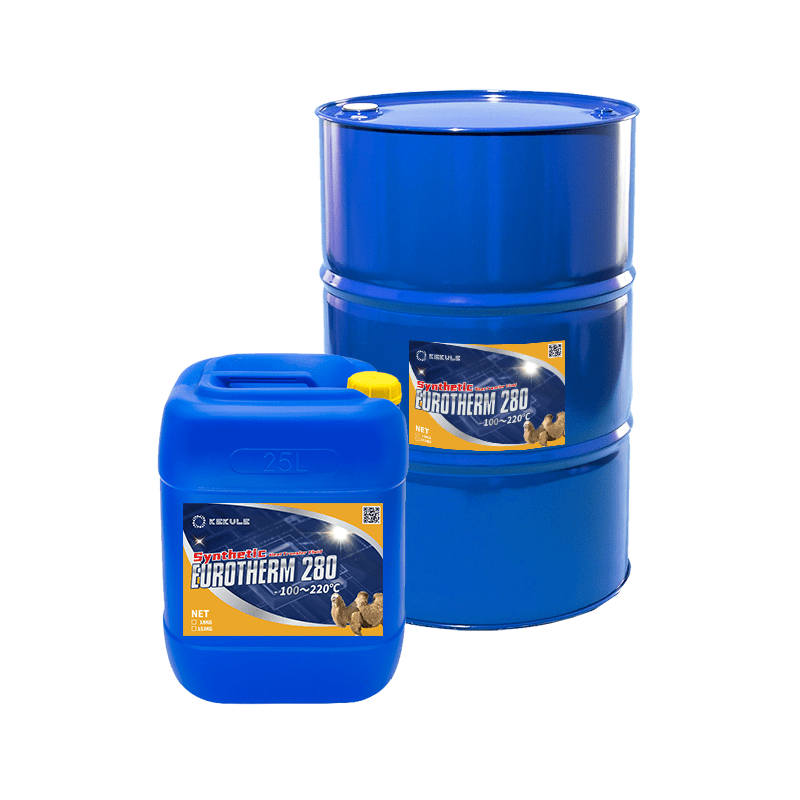Recognizing the Duty of Heat Transfer Fluid in Efficient Power Solutions
Recognizing the Duty of Heat Transfer Fluid in Efficient Power Solutions
Blog Article
Just How Heat Transfer Fluid Adds To Lasting and Cost-Effective Workflow
In the contemporary commercial landscape, the role of heat transfer liquids (HTFs) in advertising sustainable and cost-effective operations can not be overstated. These liquids are pivotal in maximizing thermal administration systems, thereby considerably enhancing energy effectiveness and reducing functional costs. Furthermore, the ecological benefits of innovative HTFs, with their high thermal stability and low toxicity, are undeniable. They not just expand system long life however also contribute to the reduction of harmful emissions. Yet, truth potential of HTFs is realized via the meticulous selection procedure, making certain compatibility and safety and security. Yet what variables should direct this important option?
Understanding Heat Transfer Fluids
In the realm of thermal monitoring, warm transfer liquids (HTFs) serve as important agents for transferring thermal energy from one location to an additional. These liquids play a pivotal role in numerous commercial applications, including chemical processing, power generation, and cooling and heating systems. HTFs are especially crafted to operate within a wide variety of temperatures, successfully helping with the transfer of warm while keeping a secure thermal account. Their capacity to operate under severe problems-- whether high temperature levels or cryogenic levels-- makes them indispensable in atmospheres requiring specific thermal control.
The make-up of warmth transfer fluids can vary substantially, including choices such as mineral oils, artificial oils, glycols, and molten salts. Each type supplies unique benefits, such as boosted thermal security, low thickness, and high boiling factors, which are picked based on particular functional needs. Additionally, the choice of HTF effects not only the efficiency of warmth transfer but likewise the longevity and safety and security of the system in which it is utilized.
As sectors remain to introduce, the development of sophisticated HTFs, defined by their boosted thermal conductivity and minimized ecological impact, is essential for meeting the demands of modern-day thermal administration challenges.

Enhancing Power Efficiency

Improving energy performance has actually ended up being a critical problem throughout numerous markets, motivating a more detailed examination of warmth transfer fluids' function in maximizing thermal management systems. These fluids are essential to keeping the wanted temperature in processes, consequently decreasing power waste and enhancing total system efficiency. By selecting a proper warmth transfer liquid, industries can significantly boost their energy efficiency, resulting in reduced power usage.

Advanced formulas of warm transfer fluids have actually been established to stand up to severe temperature levels while maintaining security and performance. These developments expand the functional life-span of the liquid, decreasing the frequency of replacements and energy-intensive maintenance tasks. Additionally, the use of synthetic or bio-based fluids supplies fringe benefits in regards to reduced ecological effect, aligning with international sustainability goals. As a result, enhancing power effectiveness via optimum warmth transfer liquid choice is not only a technical requirement but likewise an ecological critical.
Minimizing Functional Expenses
Operational prices are a significant consideration for sectors seeking to keep competitive advantage, and the selection of warmth transfer liquid plays a crucial role in price management. Selecting a proper warm transfer liquid can cause considerable cost savings by boosting system effectiveness and decreasing energy usage. High-performance fluids reduce thermal degradation, which in turn reduces the frequency of fluid substitute and downtime connected with upkeep, thereby reducing functional costs.
In addition, heat transfer liquids with exceptional thermal security and corrosion resistance expand the life expectancy of website link tools. This lowers the need for frequent repairs and replacements, which can be costly and turbulent to procedures. By buying top notch fluids, sectors can attain long-term reductions in upkeep costs and improve the reliability of their systems.
Additionally, progressed warm transfer fluids commonly display reduced viscosity at running temperatures, which improves pump performance and lowers power usage in liquid circulation. Several modern-day warmth transfer liquids are engineered to operate efficiently over a wide temperature variety, lowering the need for numerous fluid kinds, thus enhancing stock needs and decreasing linked expenses.
Ecological Effect Decrease
The push in the direction of decreasing ecological impact has actually obtained momentum in markets leveraging warm transfer liquids. Companies are progressively recognizing the relevance of decreasing eco-friendly impacts by taking on lasting techniques. Warmth transfer fluids (HTFs) play an important role in this shift, providing chances to improve energy performance and minimize exhausts. By picking HTFs with high thermal stability and reduced toxicity, industries can make certain marginal leak and destruction, thus lessening unsafe ecological launches.
Furthermore, the use of innovative heat transfer fluids adds to enhanced system performance, minimizing the overall energy consumption. This reduction not only causes expense financial savings but additionally reduces co2 exhausts, assisting in the battle versus environment adjustment. Fluids that are eco-friendly and recyclable additionally enhance sustainability efforts, as they reduce waste and promote circular economic climate methods.
Furthermore, integrating HTFs right into closed-loop systems protects against fluid loss and contamination of the surrounding setting. informative post This approach ensures that fluids are recycled, minimizing the demand for brand-new sources and limiting waste generation. By embracing these environmentally conscious approaches, sectors can dramatically diminish their ecological effect while maintaining high operational check over here effectiveness, aligning with international sustainability goals and regulative demands.
Selecting the Right HTF
Selecting the proper warm transfer liquid (HTF) is a crucial step in advancing ecological sustainability within commercial procedures - heat transfer fluid. An excellent HTF ought to possess a high thermal ability, low viscosity, and high thermal conductivity to make certain effective warmth transfer.
When picking an HTF, it is vital to consider its compatibility with system materials to stay clear of deterioration and chain reaction. This makes certain durability and reduces maintenance prices. The liquid must be safe and biodegradable, minimizing its ecological impact and making sure conformity with ecological regulations. The lifecycle cost of the HTF, encompassing procurement, operation, and disposal, ought to likewise be evaluated to make sure financial feasibility.
Conclusion

Report this page